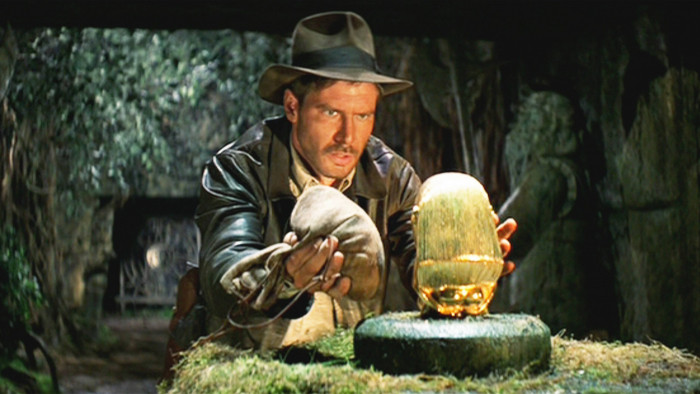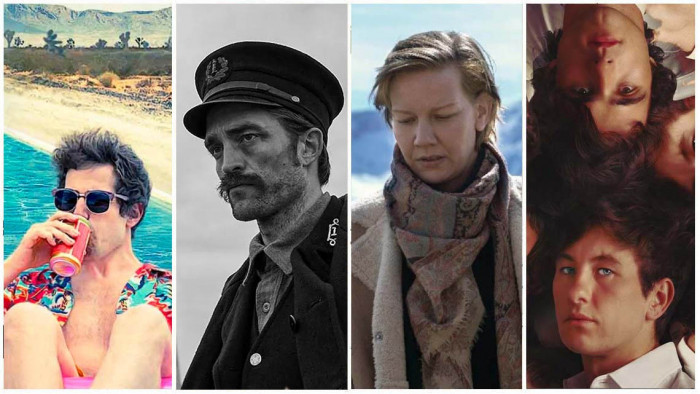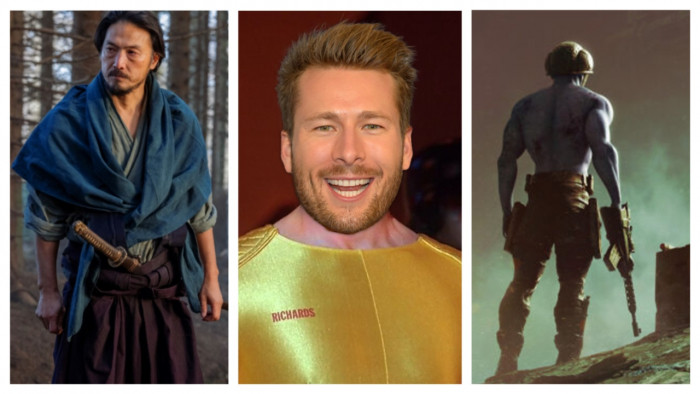After breaking out with 2000's Oscar-nominated Sexy Beast, you'd have expected British director Jonathan Glazer to go onto bigger things in Hollywood. But rather than directing the next Die Hard, Glazer instead waited four years before unveiling Birth, a lush, hypnotic yet divisive drama with Nicole Kidman that was undeservedly left out in the cold.
He's back, 10 years later, with Under the Skin, another film that's an admirably tough sell. An adaptation of the cult novel by Michel Faber, it tells the tale of an alien, played wonderfully by Scarlett Johansson, who preys on men in Scotland. We sat down with the director to discuss his brave new film, working with Johansson and why the reaction to Birth left him reeling.
Did you work with Michel Faber, the author of Under the Skin, at all during the adaptation or did you just take what he had and run with it?
I read the book. I’ve never spoken to the author at all. It wasn’t really intended to be a faithful adaptation or maybe it was to begin with. The earliest draft of the script was much closer to the book and it was really through doing that that I realised I didn’t want to do an illustrative adaptation. There’s something very powerful about the book that I became very connected to, sort of obsessed with I suppose, and that really was her journey, the idea of looking at the world through this alien lens. There’s certainly a spiritual connection between the book and the film but my intention wasn’t to make a film of the book.
The film is incredibly ambitious as it does leave a lot to the imagination of the viewer. Was there ever any pressure from anyone to make it more straightforward?
There was a conversation about it but there was never any pressure. It’s really the first time in my life that I’d been as supported as that. People really enabling me to, you know, find it. There was nothing like “we need to make this more mainstream”. We didn’t write with any commercial concerns in mind. We wrote with the view that how to make something good from this very extraordinary point of view.
Was it a long process to get to the casting of Scarlett Johansson or was she in your mind from the beginning?
I wouldn’t say that she was in my mind from the beginning but we were kind of orbiting each other for a while. We met a few times but it wasn’t really until quite late in the day that it became very clear that it should be her and once I got to that, I was very pleased that I did. We talked about it like a book that we’d both read and we’d both loved. And then it became well how are we gonna do it. We’re gonna do it in disguise and a lot of it with hidden cameras. There are some extraordinary situations that you’re going to be put into so we kind of made a pact really that she wouldn’t waiver from that commitment and she knew that she could trust me and I wouldn’t disrespect her in terms of some of the things she had to do. So she was devoted to it.
Did your cover ever get blown when you were filming in secret? Did Scarlett ever get recognised?
It happened from time to time but not to the extent that it would have happened if you were filming in London. I don’t think we could have shot the film in the same way here and get away with it. I also don’t think people would give you the permission to use it. There were times when she would be talking to somebody and they had no idea they were being filmed so you’d shoot the scene and you’d have to go up to the person and ask for their permission. Some said yes and some said no. So a lot of the film was shot that way and some of the film wasn’t and some people have said to me they can’t tell which is which. They can’t tell who is cast and who isn’t and I think that’s a good sign that there is unity across all the ingredients.
The film features a number of nightmarish scenes. How did you get to that place? Where did these images come from?
It was very important to us that it wasn’t about engineering or hardware. As we started stripping away all of the tropes that you see in science fiction, even great science fiction, the alien design and the alien planet design, you ended up with a black screen. You had to remove all those options. I think that some of those scenes do come from nightmares. You’re not using your head or your intellect. It’s coming from the gut, somewhere deeper.
The film does exist in the sci-fi genre but not in the traditional sense. Were you influenced by any sci-fi films in particular?
There are science fiction films that I love and I’ve seen them so they’re in me and I can’t un-see them but no we certainly didn’t watch films in particular. Often when you’re writing, you dismiss things for that reason. The film is a very particular viewpoint and you have to find a visual language for it of its own. It has to stand outside of everything else for it to work. It’s natural for us to make comparisons or look for them but every effort was made to make it as specific and as stand-alone as possible.
Looking back from Sexy Beast, your films have actually become less commercially focused as they’ve gone on. You must have been offered lots of conventional Hollywood films along the way. Was it something you were ever tempted by?
You never say never because something might occur to you that is a very commercial idea. I like the idea of people seeing the films that I’m fortunate enough to make and I’m not shy about that. I think the things that seem to have attracted me since Sexy Beast have been more personal and I think I’ve become more excited about the form of film, more than story. If you make a film then you’re going to spend quite a long time of your life doing so and you want to make sure that it never feels like work and it never feels like you lose interest. It has to be fertile enough to keep you interested for that length of time. I doubt I’ll ever make a standard sort of studio film but great writing, great stories of course, wherever they may come from, I’m interested in that.
Your last film Birth and now Under the Skin have both been incredibly divisive films. Do you pay much attention to the reviews?
I think the important thing is to care that it’s good rather than how it’s received and there is a difference. It’s important not to think that how it’s received defines whether it’s good or bad. As long as you think it’s good and you’ve done all that you think you could do with that material then you’re okay. I’d rather make a film that I was proud of that everyone else in the world hated than everybody else in the world loved that I hated.
But surely it must still be hard for something so personal to get criticised…
Birth was eviscerated by critics and you can’t pretend that it doesn’t take chunks out of you at the time. You do also think I really want to have the opportunity to do this again. If it’s a catastrophe then that’s going to be much harder to do it again the way you want to do it. Birth was a very hard film at the time for people to get their heads around or like. They just didn’t like it. I think they thought it was toxic. There was a real reaction against it but like I said, it never really made me feel
So it didn’t change the way that you worked or the way you thought about your next project?
I think I felt that the road I was going down with Birth, I wanted to keep going down. If anything, the negative reception of the film made me more committed to the path I chose. I thought there were some things in Birth that worked very well for me and that I was very proud of so it didn’t really knock me off my stride. I think Under the Skin is related to Birth, it’s a continuation. Now I feel like I’ve probably come to the end of that particular path so now the opportunity is to find the next one but who’s to say. I don’t know what I’ll do next.
So you don’t have an idea of what your next film is going to be?
Not in earnest no but there are a few thoughts kicking about.
Do you go and see a lot of films?
I don’t, really. When I’m making a film I find it very hard to look at other things. Partly because when you have your dark days when you’re making a film and it’s all going pear-shaped, you do look at everything else and think that’s so much better, why can’t I do it like that. It could be anything. Like when you watch a film on a plane and you find yourself in floods of tears at some romantic comedy, it’s the greatest thing you’ve ever seen. You lose your emotional compass when you’re making a film and you see other films.
You’ve directed a lot of iconic music videos. Do you still get to watch many of them because often the mainstream stuff can be a bit repetitive these days?
When people say music videos are finished and no one’s looking at them anymore and they’re not vital anymore, you can look at that and get misty-eyed on what they used to be like or you can look at that as an opportunity. You see a lot of stuff that is very referential but then I was doing referential stuff. People are finding their feet in that format. Now I think there’s more breadth and less depth perhaps. There are still great things around.
With Under the Skin, it’s obviously a small budget but the film has a very epic feel to it. What’s your main tip for burgeoning directors to make a small budget seem a lot bigger?
I got some advice once from the first producer who ever wanted to work with me and I showed him some stuff that I made at the time and I had made because I thought that I wanted to make something epic. I showed him the stuff and he said this is all shit and you should do something that’s you, find you in the way you work and express that. It’s the wrong question for a filmmaker. The right question is how do I make something intimate. If it’s intimate then it will communicate and it will connect.
Under the Skin is out on DVD and Blu-ray now
(Images: Rex Features)
Latest
Related Reviews and Shortlists


The 10 best war movies of the 21st century









